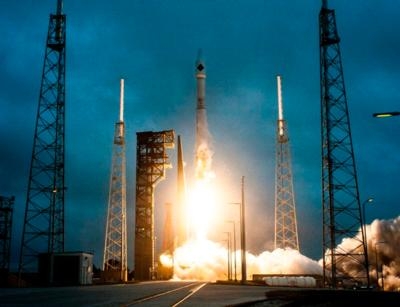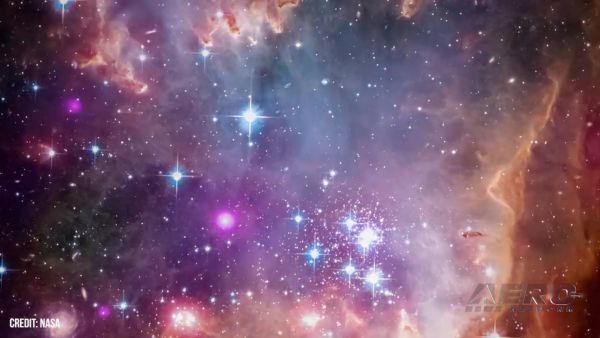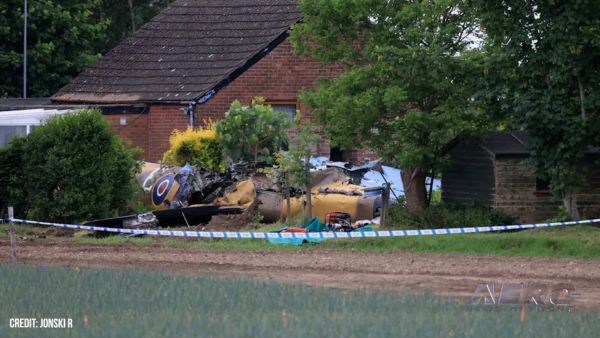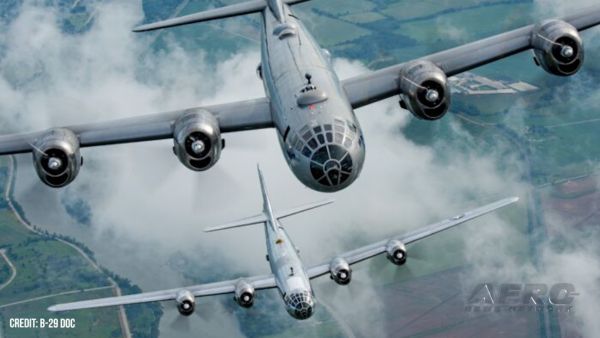Wed, Apr 19, 2017
Research Could Uncover New Information About Accelerated Aging In Space
Julian Rubinfien (16), winner of the Genes in Space competition and a junior at Stuyvesant High School, NY, launched his DNA experiments to the International Space Station (ISS) April 18th from Kennedy Space Center, FL, on cargo resupply mission OA-7. The experiments will be carried out using miniPCR technology aboard the ISS.

Julian's experiments investigate the genetic underpinnings of accelerated aging in space. The first experiment will test if telomeric DNA can be copied in space. Telomeres are protective caps on the ends of chromosomes and are known to shorten in response to stress and aging. Recently, the NASA one-year mission twin study found that Astronaut Scott Kelly's telomeres lengthened during his year in space. Julian's experiment will examine how measuring telomeres in space could enable health monitoring of astronauts during long-term missions.
The second experiment will test whether or not "on-the-spot" DNA-based diagnostic tests can be conducted on the ISS and will be the first of its kind in space. The work will make use of a new colorimetric LAMP (loop-mediated isothermal amplification) method from New England Biolabs to copy and detect specific DNA sequences. Detection of these sequences results in a change in the color of the experimental mixture.
Both experiments will use portable miniPCR DNA analysis technology. The ISS National Lab is a platform for cutting edge research and technology development that enables future deep space exploration. Julian was a student of MƒA Master Teacher Jessica Quenzer, who served as his mentor throughout the Genes in Space application process.
Genes in Space is a national STEM contest that challenges students in grades seven through 12 to design DNA analysis experiments using the ISS National Lab (managed by the Center for the Advancement of Science in Space, or CASIS.) The competition is a partnership between miniPCR, Math for America, CASIS, New England Biolabs, Inc, Boeing and is sponsored by FedEx.
(Source: Genes In Space news release. Image from file)
More News
Aero Linx: International Association of Professional Gyroplane Training (IAPGT) We are an Association of people who fly, build or regulate Gyroplanes, who have a dream of a single >[...]
NORDO (No Radio) Aircraft that cannot or do not communicate by radio when radio communication is required are referred to as “NORDO.”>[...]
Beyond Visual Line Of Sight (BVLOS) The operation of a UAS beyond the visual capability of the flight crew members (i.e., remote pilot in command [RPIC], the person manipulating th>[...]
Aero Linx: Malibu M-Class Owners and Pilots Association (MMOPA) The Piper M-Class Owners & Pilots Association (PMOPA) is a not-for-profit organization dedicated to the interest>[...]
“After eight months of negotiating, and a failed TA, unfortunately management has not recognized the pilots’ needs. We have expressed to management that we are willing >[...]
 ANN's Daily Aero-Linx (05.29.24)
ANN's Daily Aero-Linx (05.29.24) ANN's Daily Aero-Term (05.29.24): NORDO (No Radio)
ANN's Daily Aero-Term (05.29.24): NORDO (No Radio) ANN's Daily Aero-Term (05.30.24): Beyond Visual Line Of Sight (BVLOS)
ANN's Daily Aero-Term (05.30.24): Beyond Visual Line Of Sight (BVLOS) ANN's Daily Aero-Linx (05.30.24)
ANN's Daily Aero-Linx (05.30.24) Aero-News: Quote of the Day (05.30.24)
Aero-News: Quote of the Day (05.30.24)



